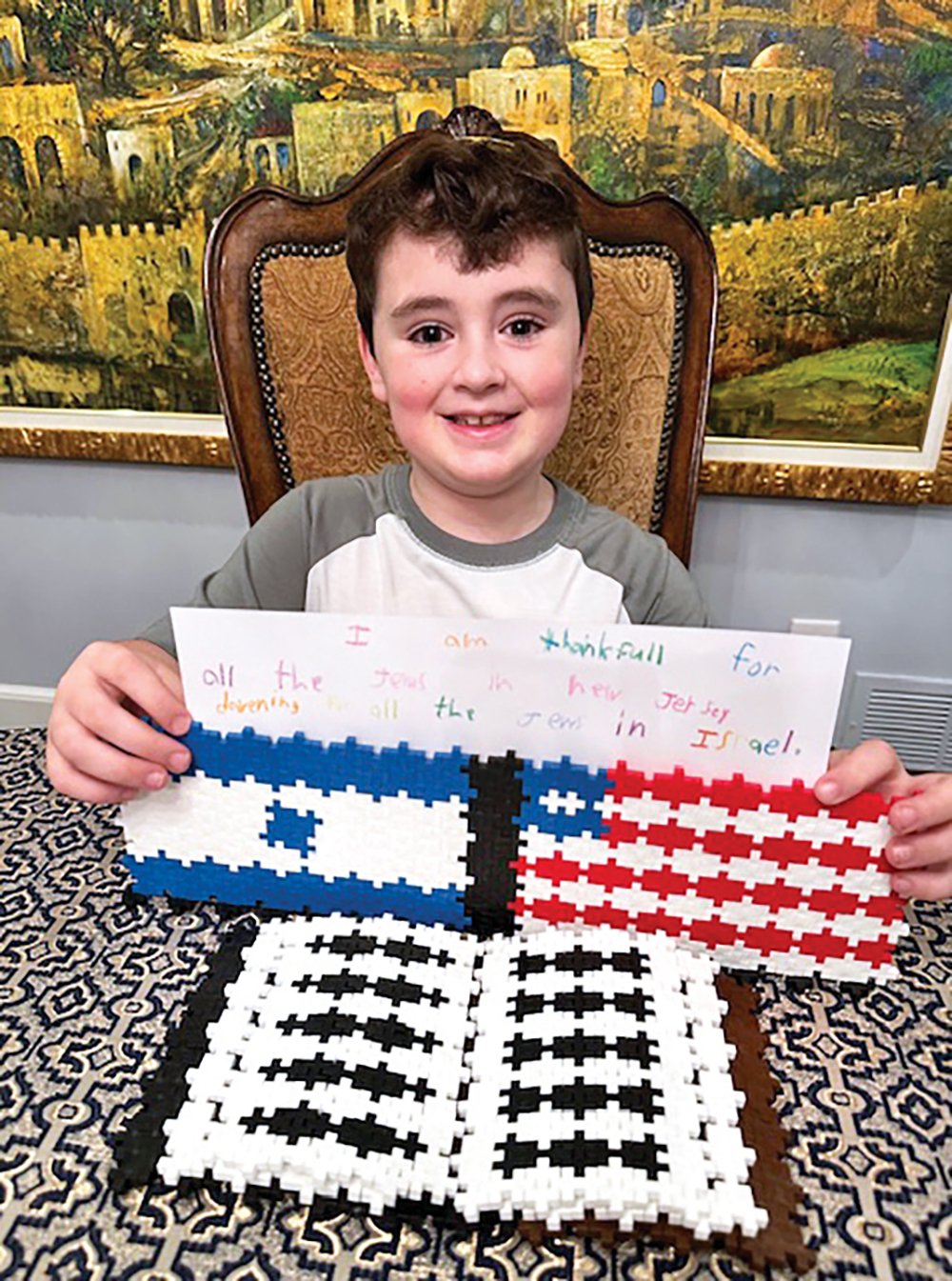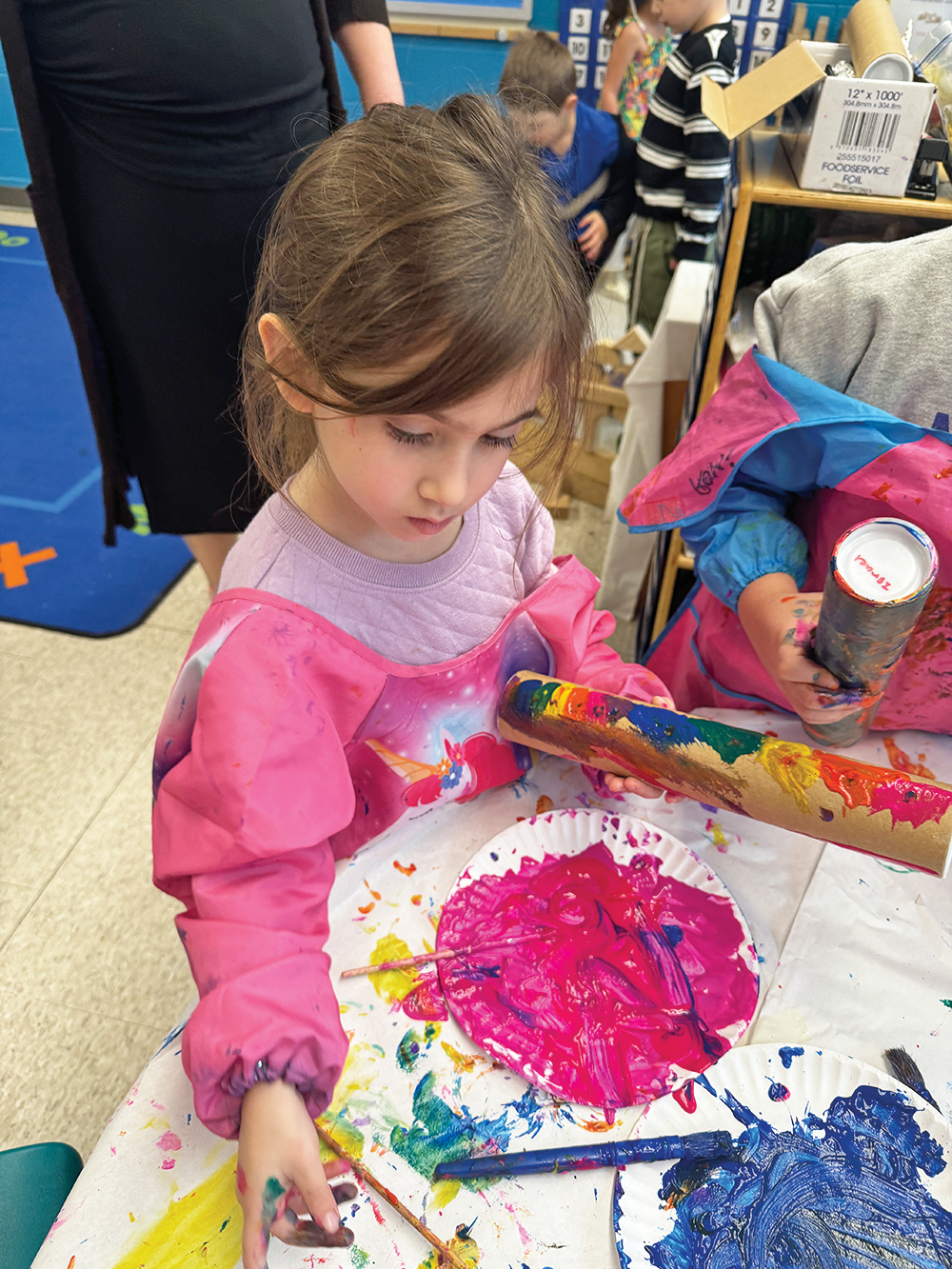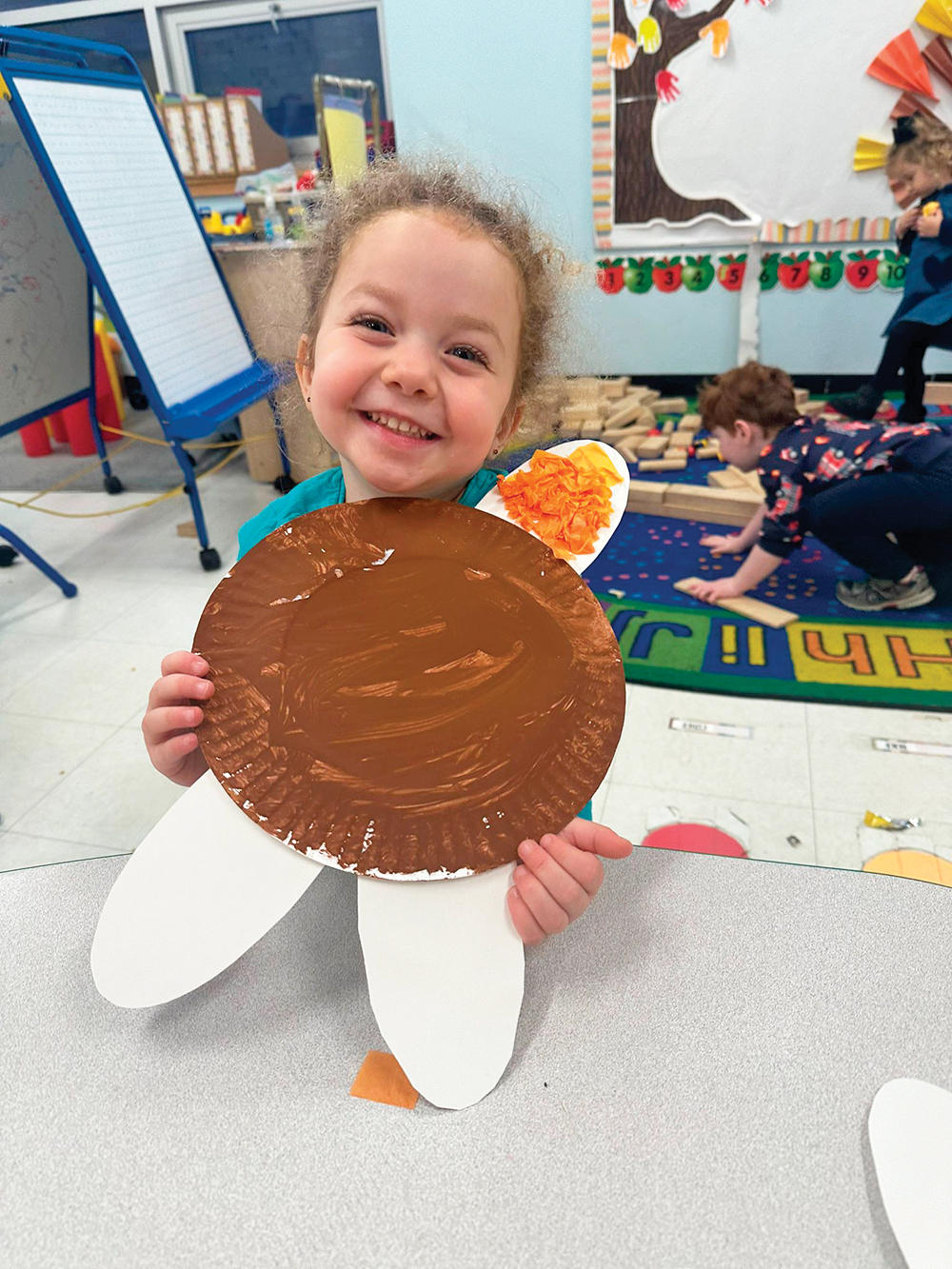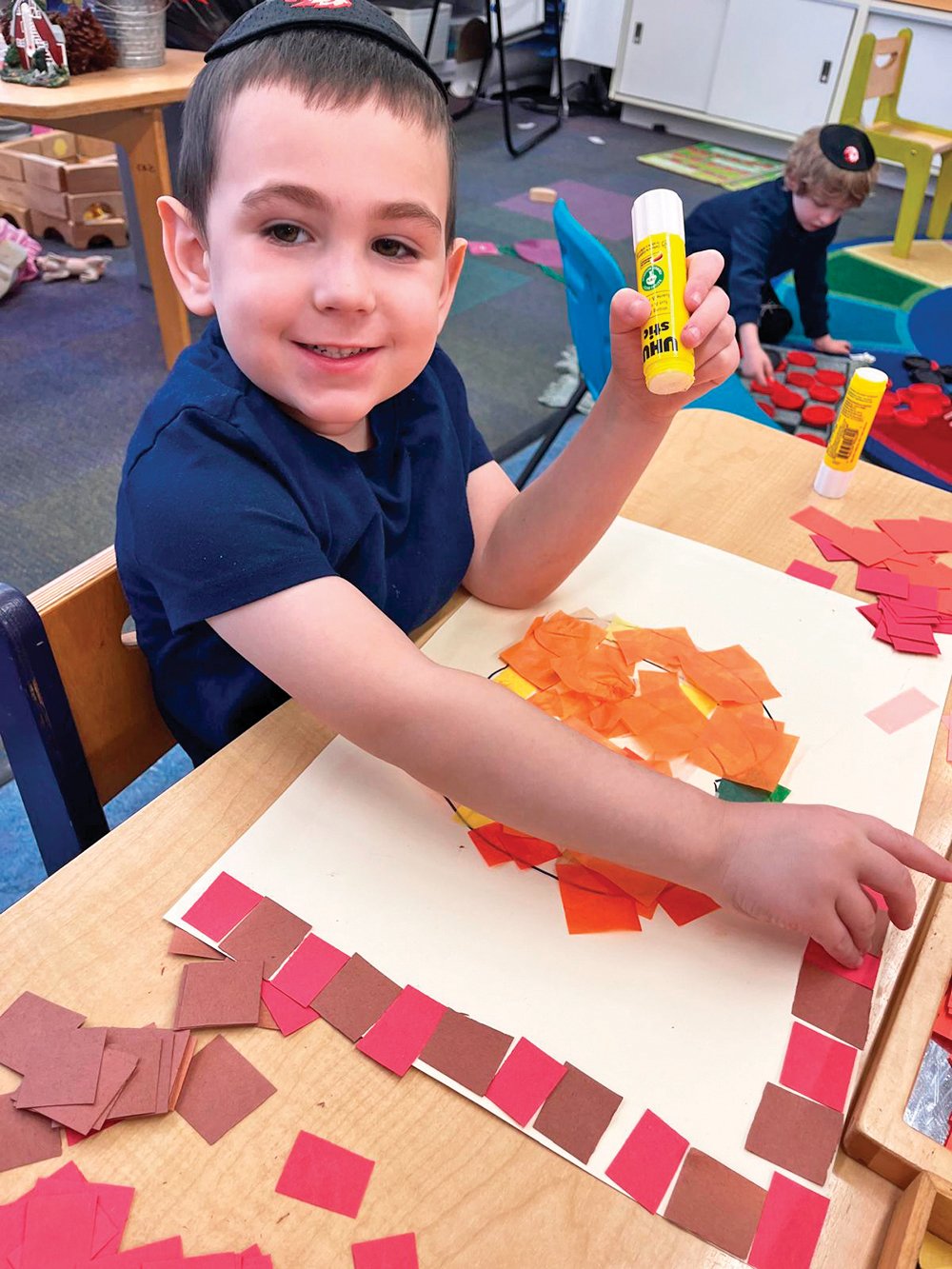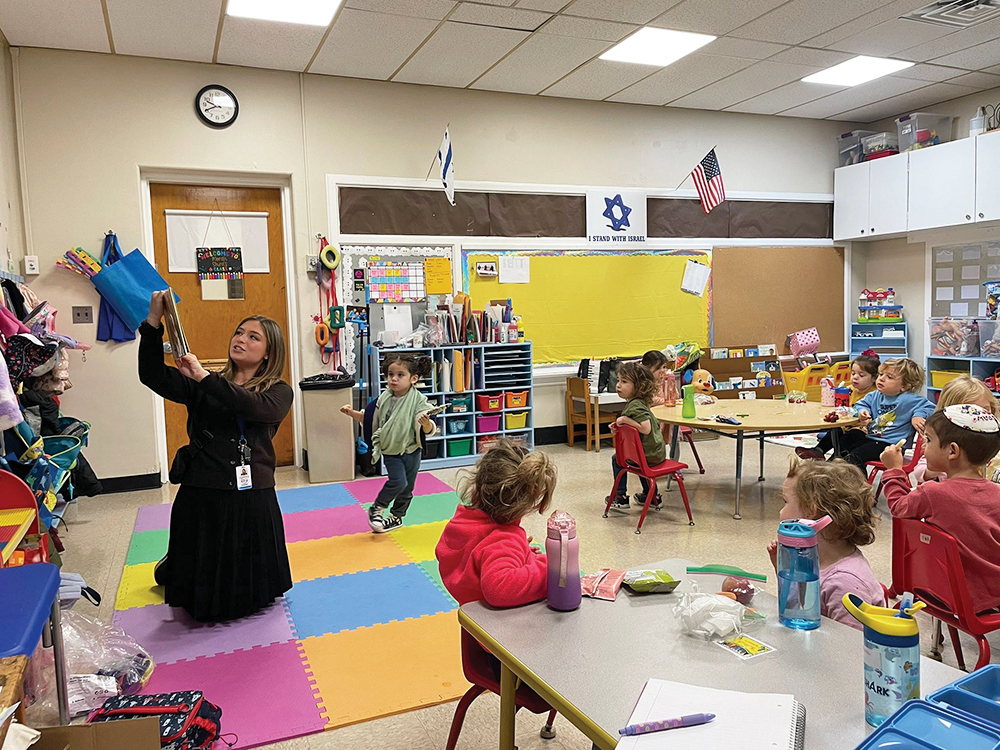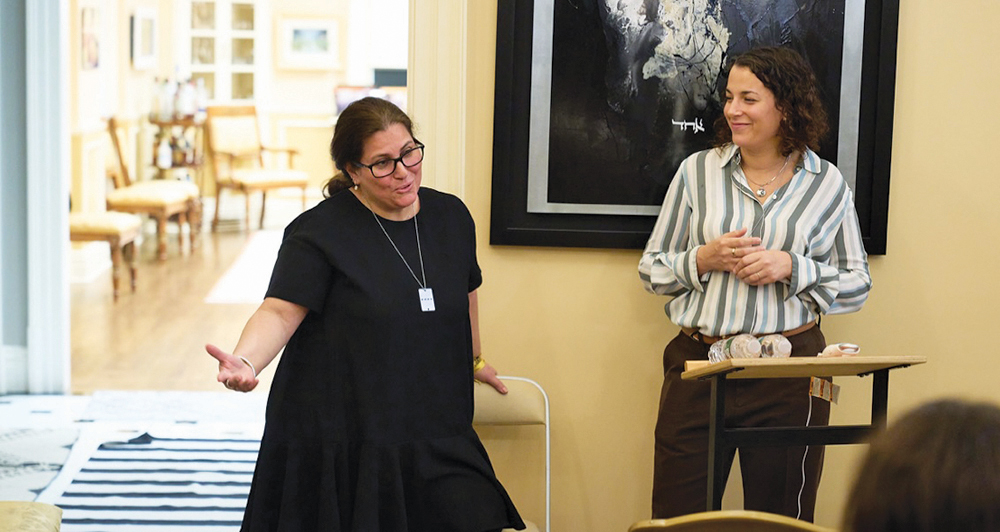
On Sunday night, December 17, New Rochelle community members gathered at the home of Nataly Neuwirth to hear firsthand from Amit Yesodi Ades, a displaced survivor of Kfar Aza. Amit, her husband Tomer, and their three children miraculously survived the attacks of October 7. They have lost their closest friends, many people in their community and their home.
Amit had spoken to the members of the SAR mission when they were in Israel several weeks ago. Her story touched the members so much that Rabbi Binyamin Krauss, the principal of SAR Academy who was leading the mission, decided to bring Amit and her family to America for a week so that more people could hear from her directly.
When Rabbi Krauss introduced Amit in Nataly’s home, he said, “There is no way to sugarcoat the sadness. But it’s important to hear firsthand from the people who were there. And when we hear their strength, kindness and belief in people, it helps us believe that there will be a good future.”
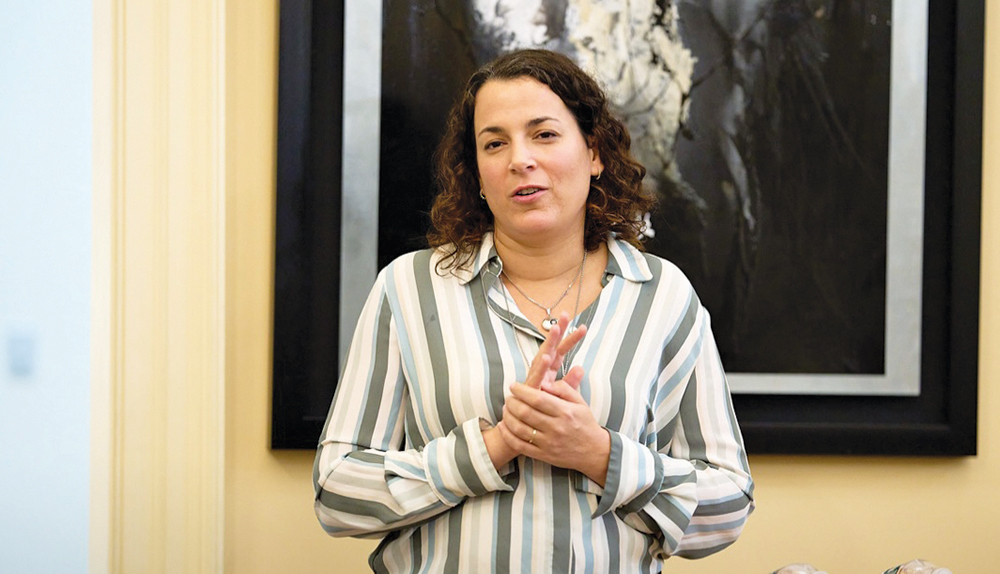
Amit spoke about her experience on October 7, waking up at 6 a.m. because her son couldn’t sleep, and hearing so many “tzeva adom” signals (“code red”—a siren in towns outside Gaza to warn of rocket attacks) that she knew, even before hearing gunshots, that something was terribly wrong.
Amit said that she and her family ran to their safe-room, and were there for 36 hours. They were among the last survivors to leave Kfar Aza. During those endless hours, the Ades family sat in their safe-room, listening to violent terrorists and gunshots all around their neighborhood.
At first, they were texting with friends in other parts of the kibbutz who were desperately sending messages to everyone, pleading for help. Those messages soon went silent.
Two hours in, Tomer got a text from his close friend that he was outside and needed help. Tomer immediately began preparing to go help him. Amit begged Tomer to stay inside, but Tomer told her he had to go—he wouldn’t be able to live with himself if he didn’t go to help his friend. Tomer added that Amit wouldn’t really want her husband to be a man who didn’t go out to help.
Tomer left her and the kids for a while. Amit stood inside the safe-room door, holding a kitchen knife in one hand and her youngest child in the other. Unfortunately, Tomer was not able to save his closest friend, Nadav. Nadav had been shooting at terrorists as they got close to the Ades’ home, and even though he was murdered, he thwarted their attempt to get inside.
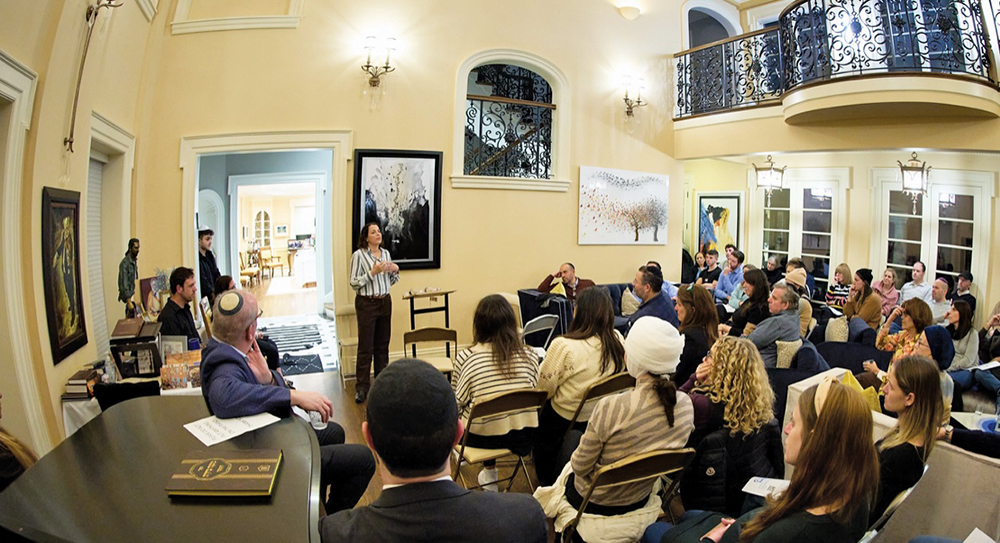
Amit choked up and paused to collect herself as she said, “We realized that Nadav had saved our lives.”
When Tomer came back inside, he built a barricade by the front door out of heavy furniture. That way, at least the Ades’ would be warned if terrorists came inside. Tomer told Amit that the way he and Amit behaved would determine the level of trauma that their kids would feel through this experience. Amit agreed, and so, she explained, they had to become “actors” in front of their kids, and not let the kids see how terrified they were.
While they had no electricity or internet, her son had a downloaded movie of “Spongebob” on his device. Amit said she will always remember that this movie was exactly one hour and 41 minutes because every time the gunshots grew louder and closer she would tell her kids to restart the movie. She said they watched it seven times from beginning to end.
They were extremely hot in the safe-room, since there was no ventilation. Tomer carefully crept out several times to bring them back food and water from the kitchen. The air became difficult to breathe. Amit explained that she opened the tiny window in the corner a crack just so that they could get some air.
Finally, on Sunday afternoon, the Ades family heard members of the IDF speaking Hebrew outside their house. She and her husband called for help, but at first the IDF didn’t trust that they were Israelis;the soldiers thought they might be terrorists trying to trick them. The soldiers asked them to call out their names and even their teudot zehut (Israeli identity numbers), and only then were they believed and brought to safety.
“Twenty-five of our people were kidnapped. Two came back. We know that a few have been killed in Gaza. While one man was out defending our homes, people in his family were kidnapped.”
Amit explained that since then, her family has been living in a hotel with other survivors from their area. The hotel they are in, while it’s tight living quarters, looks out onto grass, and they are used to being surrounded by grassy areas in Kfar Aza. The people staying in the Dead Sea hotels are not as fortunate, because they’re not used to that kind of desert landscape.
Unfortunately, the many horrors that she and her husband tried to shield their kids from were revealed by other kids living in the hotel.
However, Amit said, with gratitude in her voice, that there has been a great deal of volunteering in providing therapy. She went on to say that there has been so much kindness in general in Israel. The Ades’ car had been totaled by the terrorists on October 7, so a stranger who can’t drive well anymore gave them his car. “I needed documents from him, so I called this man—I don’t even know him, but we are driving his car that he gave to us.”
When an audience member asked Amit what keeps her going, Amit answered that her kids do. Even though taking care of her kids is challenging at this time, “they keep us sane.” She then said, “Life is life. It just goes on. I said at first, how can we drink coffee when our friends are in Gaza? But you do—you drink your coffee—because life is life.”
When asked what the plan is for their future placement, Amit explained that they are still in phase one, which means they are living in the hotels. This phase is expected to last until September. “But that’s in Israeli time,” she added with a smile. After September, they plan to move into temporary settlements for two years (phase two) and then they can return to Kfar Aza (phase three).
An audience member asked, “But do the people even want to go back there?” Amit sighed, and answered that for her, her community is the most important thing. She wants to be with the people who lived there with her. “They are the only ones who can truly understand me, and we can move on together.” For others, though, she said that the actual land is the most important factor. For them, it’s crucial to move back to Kfar Aza to feel that all the deaths, both civilian and soldiers’, weren’t in vain.

(Credit: Stan Weiss)
Another audience member asked if she had returned to take anything from her house. Amit explained that Tomer has returned several times, and each time he asked her what she wanted. She would always answer that she doesn’t want anything; she feels that all her things have been violated.
Another listener asked, “How did the Israeli government get people to live in Kfar Aza in the first place? They must have needed to incentivize people to live so close to Gaza.”
Amit laughed and said that there was a waiting list of people who wanted to live there! There were more people living there before October 7 than ever before. It’s true that the residents were given certain tax benefits, but they were really there because of the area. “It was 95 % heaven and 5 % hell.”
Most of the time, the people felt the joy of being surrounded by natural beauty. There are playgrounds all over, and the kids ran around outside barefoot and independently. The 5 % was when, around once every six months, they were warned of an upcoming missile attack. They were usually given enough warning, so they could leave, return when it was over, and resume life as usual.
“I could live with that,” Amit said, “because it’s such a beautiful place, and such a great place to raise kids. We thought the Iron Dome kept us safe.”
When Amit concluded, Nataly Neuwirth explained that this is a time to help the families of the South. She asked the community to donate to the Israel Gives Foundation, under the “Love Support” name, which provides direct support to families as they rebuild their lives, homes and businesses. Neuwirth said she would repeat an important message she heard from a rabbi: “We have to give till it hurts,” emphasizing, ”Even if you think you are giving so much, at the end, you have a house to go back to. These people don’t.”
To donate, please go online to: my.israelgives.org. This is part of the IsraelGives Foundation, and all donations are tax-deductible. You can add the words “lovesupport” when you donate.


